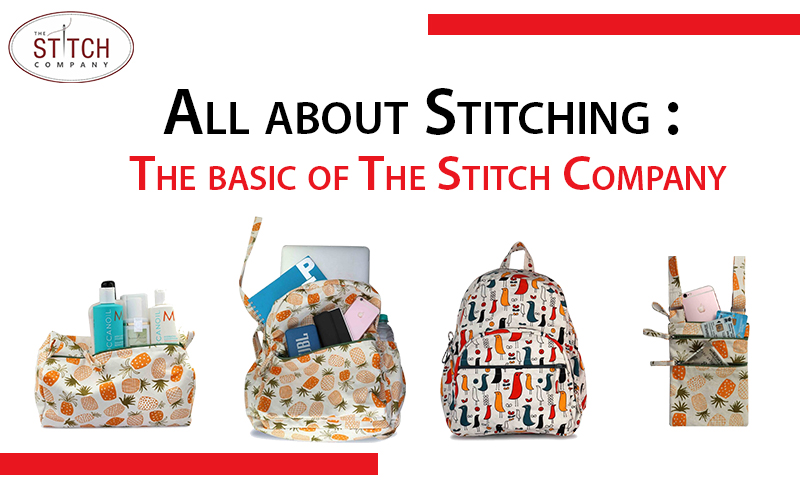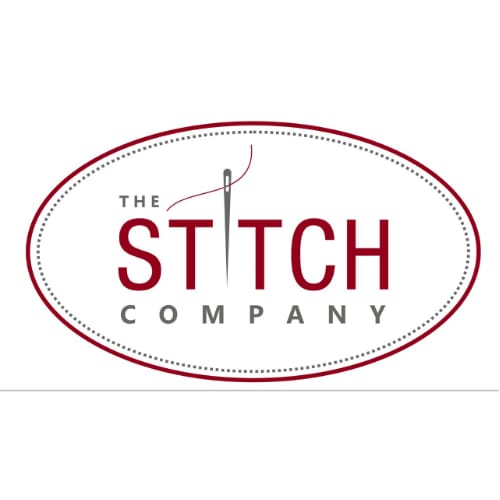
Donate While You Buy Handmade
30/08/2020
DEBUNKING MYTHS ABOUT HANDMADE BAGS!
16/09/2020The Stitch Company is a hand-made bag manufacturing firm selling unique bags across the world.
7 REASONS WHY TO GO FOR HANDMADE PRODUCTS?
- UNIQUE– you can’t stop preaching about the handmade products which are very unique as it will never be the same as any other the reason being that they are produced by the hands of an artist and not a machine. The bag so made is a product of dedication, love, passion and the zeal to serve the customer.
- LOVE–handmade products are made with utmost detailing and love for the receiver. Handmade products are considered the perfect gift because it reflects the amount of work one has put in a single product.
- DURABLE- remember the last leather bag you had? Which lost Its coating soon after getting wet in rain, or after using it for 3-4 times. That’s not the case with hand-made cotton bags. They are washable which makes it look clean with every use. No hassle with maintenance.
- ENVIRONMENTAL FRIENDLY– the products are made of natural materials like cotton and jute. No animals are harmed in the process. No machine chemicals are deposited in the river and no electric machines are used. Instead, it is replaced with human efforts, sweat and love.
- PRESERVES CULTURE– The handcraft industry of the cottage industry in India dates back to the pre-British era. That is what the power of a handmade product is. It wouldn’t have been possible if the people have given up the idea of handmade products.
- SUPPORTS LOCAL ECONOMY– when we spend the minimal amount on handmade products the money is directly supportingIndianartist and in turn the economy it creates a job for many people and help them earn a living. That is what it is a minimal amount to make one’s life.
WHY SUPPORT LOCAL BUSINESSES
The handicraft industry in India is worth 24300 crores and is showing a continuous growth rate of 20% every year. Can’t believe right?
That is the number of people more sensitive and aware of contributing to the economy.
- Promoting small cottage industries– women are they predominant employees of this industry who start their handcraft jobs after completing the household chores and add on an additional income to the family. It is surely an extraordinary zeal to contribute to both family and country.
- Initiates self-employment of the poor people with low income and capital to invest in a business, takes up a cottage industry for a local business to generate employment for themselves and for the workers around so that they are able to sustain themselves.
- Social Development when there are people of the regional backward area contributing to the economy it helps in their upliftment and lessens the social disparity.
- A country’s global presence is enhanced when the country is self-dependent and is selling the handicrafts in the international market. It develops a specialized identity of a country.
HOW ARE OTHER ALTERNATIVES HARMFUL?
PLASTIC bags are difficult and costly to recycle and most end up on landfill sites where they take around 300 years to photodegrade.
They break down into tiny toxic particles that contaminate the soil and waterways and enter the food chain when animals accidentally ingest them.
But the problems surrounding waste plastic bags starts long before they photodegrade.
Our planet is becoming increasingly contaminated by our unnecessary use of plastic bags.
Plastic bags are now amongst the top 12 items of debris most often found along coastlines Animals and sea creatures are hurt and killed every day by discarded plastic bags – a dead turtle with a plastic bag hanging from its mouth isn’t a pleasant sight but mistaking plastic bags for food is commonplace amongst marine animals.
Plastic clogs their intestines and leads to slow starvation. Others become entangled in plastic bags and drown.
LEATHER BAGS
The pure leather products like jacket, shoes and bags take the life of numerous innocent animals. It is a fact it takes 7 lives to make one jacket. That is how crucial this is. Killing animals for one’s own luxury.
As for the synthetic leather is concerned Conversion of rawhide into the leather (an unalterable product) requires several mechanical and chemical operations involving many chemicals in an aqueous medium, including acids, alkalis, chromium salts, tannins, solvents, auxiliaries, surfactants, acids, and metal-organic dyes; natural or synthetic tanning agents; sulfonated oils, and salts.
The quantity of effluent generated is about 30 L for every kilogram of hiding or skin processed. The total quantity of effluent discharged by Indian tanneries is about 50,000 m3/day and contains high concentrations of organic pollutants.
Ever considered the pain behind a single leather bags?
OUR DESIGNS- PAIN-FREE
Our designs are bock print-oriented
People love block printing because of the bold and simple designs that can be created, but that simplicity takes a lot of steps to achieve.
The technique is excellent for images with just a few colours and fewer details but can be difficult to use for images with lots of small text, or very fine details that tend to break off the block with too many uses.
One of the advantages of block printing is that it can be done on a surface of almost any size and texture. I print on fabric, paper, canvas, wood and other materials, and you don’t have to worry about fitting it through a printer or a press.
Block printing is also an excellent way to produce something that is truly handmade but can’t be very easily replicated. Carving the block is time-consuming and requires a lot of patience, but once you have the block you can use it hundreds or thousands of times.
Block printing is also one of the easiest printing methods to get started with, since the materials needed to start are relatively inexpensive, and you don’t need a lot of equipment for printing.
Hand block printing, large scale production of cloth prints can be done. The pattern’s size can be produced in a different way each time by stamping the wooden blocks from various angles. The quality of print and its texture are very graceful. People love such prints and hand block printing orders are given at very large scale.
Hand block printing in India is done on cotton cloth. That type of cloth is cheap and can be found anywhere. Also in summers, people want to wear cotton clothes and due to this reason, hand block prints are always in demand. This process is praised because it doesn’t involve any machine to do the printing related work. It only involves skilled artisans for doing all the work thereby giving employment to many people.
The advantages of hand block printing are in such a large extent that it has become popular all over the world. It has made the way for itself to stand in the popular section of printing techniques after many efforts and risks.
India is one of the largest manufacturers and exporters of block printed fabric it has always been remembered for the variety the richness and the quality of the handloom
Process of Block Printing
The process of block printing is not easy. Apart from skill and teamwork, it also demands perseverance. It starts with a wooden block. Woodcarvers cut the block to design different shapes and sizes. To allow air to pass and dye to squeeze out, every block has two to three cylindrical holes.
Next comes the arrangement of fabrics. Twenty four layers of jute taut is stretched over a rectangular table which is used to secure the fabric by pinning the fabric to the jute pad. The jute also serves as a pad to provide resiliency to the printing surface.
VOCAL FOR LOCAL
As a Nation, we not only need to celebrate but also promote block printing as a craft. After all, it is the oldest printing technique that has stood the test of time. Presently, what we need is more awareness and promotion for handmade and environmentally friendly products. The artisans need our support. For now, we can start by spreading the word and purchasing local handicrafts directly from them for this historic industry to survive and flourish.
The beauty of this is long-lived and will continue to be.
If people join hands to save the environment and the economy, both at the same time, they will be able to sustain them both.
The term Atmanirbhar Bharat will hold true to its meaning as people will support and grow the local brands and make its presence on a global level.
It is said ‘’two for a tango’’ or ‘’taaliekhaath se nahibajti !‘’
it is what it is. They can’t grow without the public support and a good customer base in both domestic and international.
We should not follow a trend, we should build one! BE A TRENDSETTER
For doing that try our block printed and screen printed bags and unleash your swag and be a trendsetter, contact The Stitch Company for our product range.
Hurry up for the exclusive prices.









